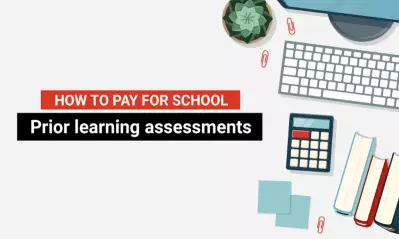Transfer to save time: Fast-track your degree prerequisites with individual courses

Written by Elizabeth Exline

The clock is ticking
Everyone’s looking to save time these days, from self-checkout at the grocery store to at-home workouts to even degree programs. Or perhaps especially degree programs. Whether you’re hoping to fast-track your bachelor’s degree at a traditional university or have fallen behind on getting your prerequisites for a specific educational program, earning transfer credits at an accredited university can spell the difference between starting on time or waiting another semester. Here’s what you need to know.
When to fast-track
The terms fast-track and accelerated are relative. For some, it might mean wrapping up a bachelor’s degree in under four years by taking classes over the summer. For others, an accelerated degree might mean scrambling to get one or some prerequisites for an academic program they’re planning to start in the near future.
The saving grace in either situation can be individual courses.
Expediting graduation
Students may be eager to complete their degrees for any number reasons, and one way to do that is to take individual courses in between semesters.
To make it work, students at traditional universities need to make sure that they take these general education courses at an accredited university whose credits will be accepted by their school of record.
University of Phoenix (UOPX), for example, routinely offers prospective students course designs to help with this process. Students can take those designs back to their schools to ensure that any credits they earn at UOPX will be accepted.
“We don’t want you to waste your time or money,” says Chantel Hansen, MSA, an enrollment manager at UOPX. “Our courses typically transfer, but it’s always up to the accepting institution.”
From there, students often find that the online format is convenient, more so than even at a community college. UOPX offers classes starting every few weeks, for instance, so students can start quickly. Each class lasts four to five weeks, and the online format means students can complete coursework on their own schedules, letting them save time while taking class and fast-tracking their degree.
Some popular disciplines for general education courses include:
- English
- Math
- Accounting
- Humanities
- Communication
- Business
- Social Science
Getting program prerequisites
Graduating early is one thing. Getting prerequisites on time is another.
Jason Cottingham, an executive enrollment representative with UOPX, has seen it all during his 20-year tenure. He’s seen teachers scramble to meet their continuing education requirements
, for example, and he’s seen would-be nurses and other medically minded students seek out prerequisite science courses and labs.

For these students, UOPX delivers on both flexibility and quality.
“A lot of those people are our traditional demographic where they’re working adults,” Cottingham explains. “So, taking an anatomy course with a lab isn’t exactly an easy thing at the community college.”
Hansen concurs. Like Cottingham, she has witnessed firsthand how individual courses, especially those with lab components, let students save time.
“In traditional schools, labs are typically separate, whereas here it’s all in one class,” she says.
For students planning on entering medical school or a specific medical program, such as a physical assistant or nursing program, some of the most popular individual courses at UOPX are:
- Biology
- Anatomy and physiology
- Microbiology
- Chemistry
- Biochemistry
- Psychology
- Statistics or biostatistics
Focusing on passing
Sometimes, fast-tracking a degree is about giving a tough class its due. If you know, for example, that biochemistry is going to be challenging, it can help to take that class online or in between semesters (or both!) so that you can give it the attention it deserves.
“We’re able to consistently fill a gap,” Cottingham observes. From finance to physics, students can sometimes just learn better when the stress of a traditional classroom setting is removed.
How to fast-track right
Aside from emphasizing the importance of finding a reputable, accredited university and ensuring a course’s credits will transfer to a degree, Hansen and Cottingham have a few more suggestions for students seeking an accelerated degree.
Consider an online university where classes start frequently: If you have a deadline for graduation or matriculation, it helps to find a university where you can quickly get into the class or classes you need.
- Think about tuition: One of UOPX’s many advantages is that it offers fixed-rate tuition, which means the rate never changes from enrollment day to graduation day.
- Go where others have gone before: Universities like UOPX welcome thousands of students for non-degree courses. In 2021, more than 13,000 students took individual courses at UOPX — and 93% of them successfully completed their coursework.
- Don’t bite off more than you can chew: “You could take two classes at one time,” Cottingham says of UOPX’s courses. “You can even take a third with approval … [but] I spend a significant amount of time trying to talk students down from taking huge amounts of classes at one time.” The idea is to finish early and finish well, not fail.
- Weigh your options carefully: Community colleges are good options for a lot of people looking to inexpensively accumulate transferable general education credits. But community colleges are often constrained by the same schedules of traditional universities. Sometimes, it pays to take an online class that can start and end before a semester is even halfway over.
Individual courses are, in many ways, their own experience. They don’t replace a traditional degree program, but they can complement it. And their availability is often a relief to students who are in a hurry.
“We really do get a lot of phone calls where people are just panicked and they’re like, ‘I’m gonna lose my job,’ or, ‘I’m not gonna graduate on time. I can’t enter this program,’” Cottingham says. “So, [ours] is a very rewarding job from that standpoint. … You finish a lot of conversations where the students are like, ‘I didn’t even know this was an option. I’m so relieved!’”

ABOUT THE AUTHOR
Elizabeth Exline has been telling stories ever since she won a writing contest in third grade. She's covered design and architecture, travel, lifestyle content and a host of other topics for national, regional, local and brand publications. Additionally, she's worked in content development for Marriott International and manuscript development for a variety of authors.
This article has been vetted by University of Phoenix's editorial advisory committee.
Read more about our editorial process.
Read more articles like this:


